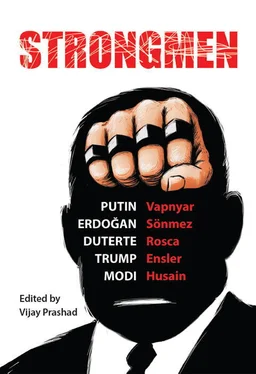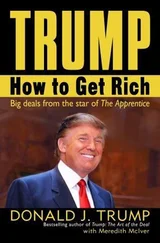Jumla
My story and acting career coincide with Narendra Modi’s ascendency to power. In fact, Modi had a head start on me. He already had a massacre under his watch before I started massacring characters on the stage. In 2002, we both arrived at our current avatars . I resigned from my bank job to become an actor. Modi, who had been party to the terrible state-sanctioned pogrom in Gujarat against Muslims in 2002, won an election to lead the government in Gujarat. Modi saw this victory as endorsement by the public of his deeds—including his misdeeds.
Modi is not the first political leader who has seen his electoral victory as redemption, as a referendum on his past. Even if the election victory was secured by manipulation or by rigging the discourse, it was still sufficient to whitewash—or in Modi’s case, saffron-wash—his actions. Modi, born in 1950, was just out of his teens when Indira Gandhi won a thumping election victory in 1971—which was seen as vindication of her unfavourable policies and of the reasons for her expulsion from the Congress Party in 1969. The delusion of her victory led us to suffer through the National Emergency for almost two years between 1975 and 1977. Dangerous misuse of tragic events would occur when the Congress Party won a conclusive victory at the polls in 1984 after the army had been sent into the Golden Temple in Amritsar, after the assassination of Indira Gandhi and after the murder of three thousand Sikhs. Modi—in a similarly twisted way—used his electoral victory in Gujarat in 2002 as a public approval of the massacre that took place under his watch. Modi understood that power could only be captured through an overpowering narrative and that often such narratives are built on the blood of the dispensable enemy—the “other.” He learned his lessons well during the years of his apprenticeship both in the fascistic Rashtriya Swayamsevak Sangh (RSS) and as a careful observer of Indian politics.
Today, both Modi and I are in the middle of our careers. I, as an artist, and he, as a man who attempts to become a myth. We both search for a lasting legacy. But, unlike me, he’s almost reached his goal.
The 2014 parliamentary election saw one political party—for the first time since 1984—win an absolute majority. Modi, with his excellent PR campaign and a successful social media campaign like Barack Obama, convinced people that he is pro-development and pro-good governance; he also convinced the business elite that he is their close friend. It was not easy to prove that he was friendly to the business elites. They are his first constituency. The magic of his myth was that he was able to convince people that he was pro-development—a word that still carries enormous meaning for people who wither under poverty and indignity. Every person who has studied Modi closely has been wary of his “success” as the chief minister of Gujarat. The electorate, nonetheless, seemed exhausted by the corrupt incumbent Congress government and was generous towards Modi and his team. But, in the midst of his five-year term, Modi seems to be running out of steam. Most of his election promises have turned out to be empty talk— jumla —a rhetorical statement made for an immediate teetering effect with no intention to produce policy and then actual improvements in people’s lives. Many of his policy decisions—demonetization and the Goods and Services Tax (GST)—have been duds. Job creation is the slowest it has been in the past seven years. The economy slips downwards. Economists now predict that even massive government spending to boost demand would not help. Social divisions are sharp. Environmental disaster is before us as the air is unbreathable and the soil is polluted each day. The agrarian crisis escalates and food insecurity has allowed the epidemic of hunger to breed across the country. Civil liberties and the freedom of speech are being curtailed. A general sense of unrest prevails.
Modi cannot peddle fiction anymore. Nor can he throw statistics at us. Nor can his grandstanding and event management save him further. Modi is in a desperate search for his legacy.
Farid ud-din Attar’s poem “The Simurgh” (“The Conference of the Birds”) tells the story of a band of thirty birds who are in search of a king. They cannot find the king. The hoopoe leads them to a lake. They peer into its waters and find themselves—the thirty birds, the simurgh . They are what they have been seeking. Modi prances about like the king. But the people won’t see themselves in him. If they did for a moment, it was their delusion. They will eventually find themselves. Modi, who they had thought was the Simurgh , is an imposter. His legacy is jumla .
Origins
When Modi first appeared on the stage, I hardly noticed him. India, by the 1990s, was a great tragedy— Hamlet being played in a theater of tattered grandeur. Modi seemed like Rosencrantz or Guildenstern, brought in to distract India from the madness of poverty and religious violence that had torn apart our society. People do not take notice of stardom—or tragedy—until it looms large in their faces.
Modi was a minor figure in Gujarat who caught the attention of his party, the Bharatiya Janata Party (BJP), when he organized party leader Lal Krishna Advani’s Rath Yatra through Gujarat in 1990. That Rath Yatra, pickled in hatred and saturated in blood, animated sections of India to assert bilious ideas that had been set aside by our freedom movement: ideas of Hindu assertion, of hatred towards Muslims, and of the normalcy of gender and caste hierarchy. Modi was the producer of the Gujarat version of his Bollywood-like tragedy.
Modi’s rise through the BJP in the 1990s was helped along by the deep respect he had earned in the RSS. He used the RSS and its methods to gallop to the front of the BJP’s ranks, to become, by 1988, the BJP general secretary in charge of the party’s organization. Modi, even by then, was clearly the paragon of the RSS ideology, with a dash of narcissism thrown in on the side. It is not for nothing that the psychologist and social scientist Ashis Nandy called Modi a “fascist” after he interviewed him in his nobody days. Nandy wrote that he did not use this term to abuse Modi, but it was used to describe the symptomatic manifesto of an authoritative mind that was seeped in fascist ideology.
Nothing about Modi is easy to take at face value. The myth has been created by fantasy and by money, more than by reality. It is fitting that Lance Price, the author of The Spin Doctor , wrote one of the biographies of Modi. Price said that he had never heard of Modi before the 2014 elections. An anonymous person gave him an undisclosed amount to write The Modi Effect , a book that cultivated the Modi myth. It was important to Modi’s spin-doctors that the “pen for hire” comes from the United Kingdom—their fascination with validation by the British is part of their legacy. It is what muddled their own ultra-nationalism, whose roots are not so much in our freedom movement as they are in collaboration with imperialism.
Savarkar
V.D. Savarkar (1883-1966) was the architect of Hindutva (Hinduness), the ideology of the RSS and the BJP. This Hindutva was neither comfortable with Indian anti-colonial nationalism nor was it uncomfortable with British imperial rule. Savarkar’s own career began with anti-colonial actions, but ended with anti-national politics. He would set the groundwork for the RSS and the BJP and for Modi’s peculiar mix of ultra-nationalism in close fealty to the United States and to multinational corporations. In their world, this duality is not unusual. It is the essence of their ideology.
Young Savarkar went to England to study law in 1906. In London, he founded the Free India Society with other Indian students. Three years later, Savarkar was arrested for being an accomplice in the assassination of the Collector of Nasik, A.M.T. Jackson. He was said to have supplied the pistol that killed Jackson. Savarkar was sent to the dreaded Cellular Jail in the Andaman Islands for fifty years. Within the first month of his imprisonment, Savarkar wrote a mercy petition to the British, asking for forgiveness. This was rejected in 1911. He wrote many of these mercy petitions—each in the British archives—each more craven towards the British, each offering his unflinching loyalty to the British Raj. In one of his last mercy petitions, Savarkar wrote,
Читать дальше











